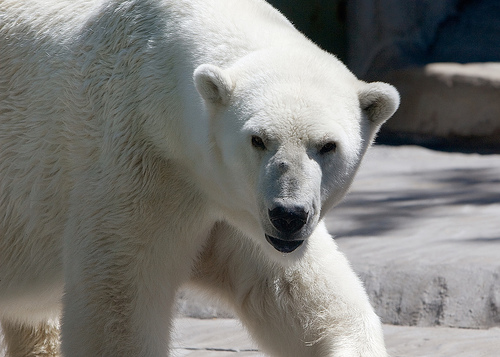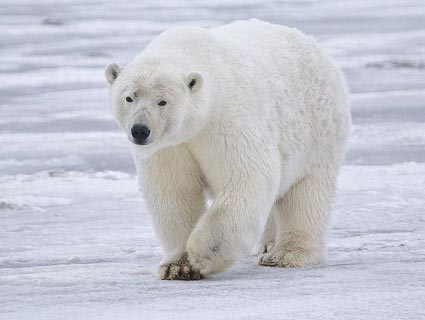
<a href="http://www.flickr.com/photos/davidw/2132684141/sizes/m/in/photostream/">longhorndave</a>/Flickr
Some new details have emerged in the mysterious case of Charles Monnett, the government wildlife biologist under investigation by the Department of Interior’s Inspector General. When Monnett, who works for the Bureau of Ocean Energy Management, Regulation, and Enforcement (BOEMRE) in Alaska, was placed on adminstrative leave last month pending an investigation into unspecified “integrity issues,” there was speculation that the probe was linked to the biologist’s 2006 paper on polar bear deaths in the Arctic. But a spokeswoman for BOEMRE insisted last week that the investigation has “nothing to do with scientific integrity, his 2006 journal article, or issues related to permitting, as has been alleged.”
On Tuesday, Monnett’s legal representatives at Public Employees for Environmental Responsibility (PEER) released a memorandum that the IG’s office issued to the biologist last Friday indicating that its investigation centers on the procurement process for a research project on “Populations and Sources of Recruitment in Polar Bears.” The University of Alberta in Canada is the lead organization on the ongoing study, but BOEMRE provided a substantial portion of the funding. The agency ordered to the university to “cease and desist” all work on the study five days before Monnett was suspended in mid-July.
The IG’s memo to Monnett requests an August 9 meeting to discuss “compliance with Federal Acquisition Regulations, disclosure of personal relationships, and preparation of the scope of work.” The memo also states that the matter under investigation was referred to the Department of Justice, but that the agency “declined criminal prosecution.”
In a release on Tuesday, PEER, which maintains there nothing untoward about his relationship with the contractors working on the project, argued that Monnett’s suspension interferes with valuable work tracking polar bears. The current polar bear study “has been extraordinarily successful,” the group writes, in gathering “invaluable data” about the movement of polar bears across the US-Canadian border. This is of particular importance, PEER notes, in looking at the increased distances that the bears are traveling due to sea ice decline.
A spokesman for BOEMRE declined to comment on the new details, which make it clear that there’s much more to this story than was apparent last week.












